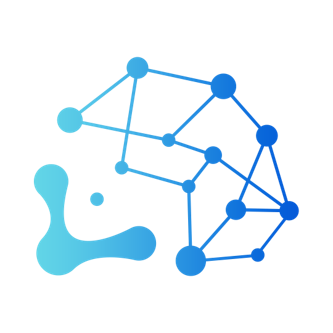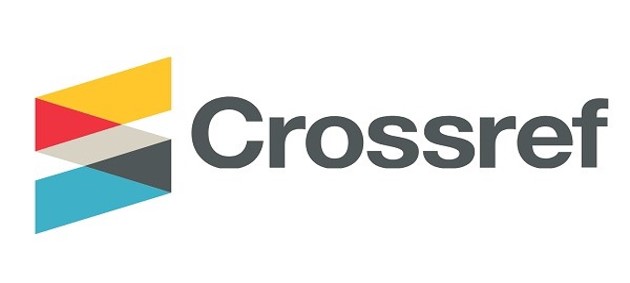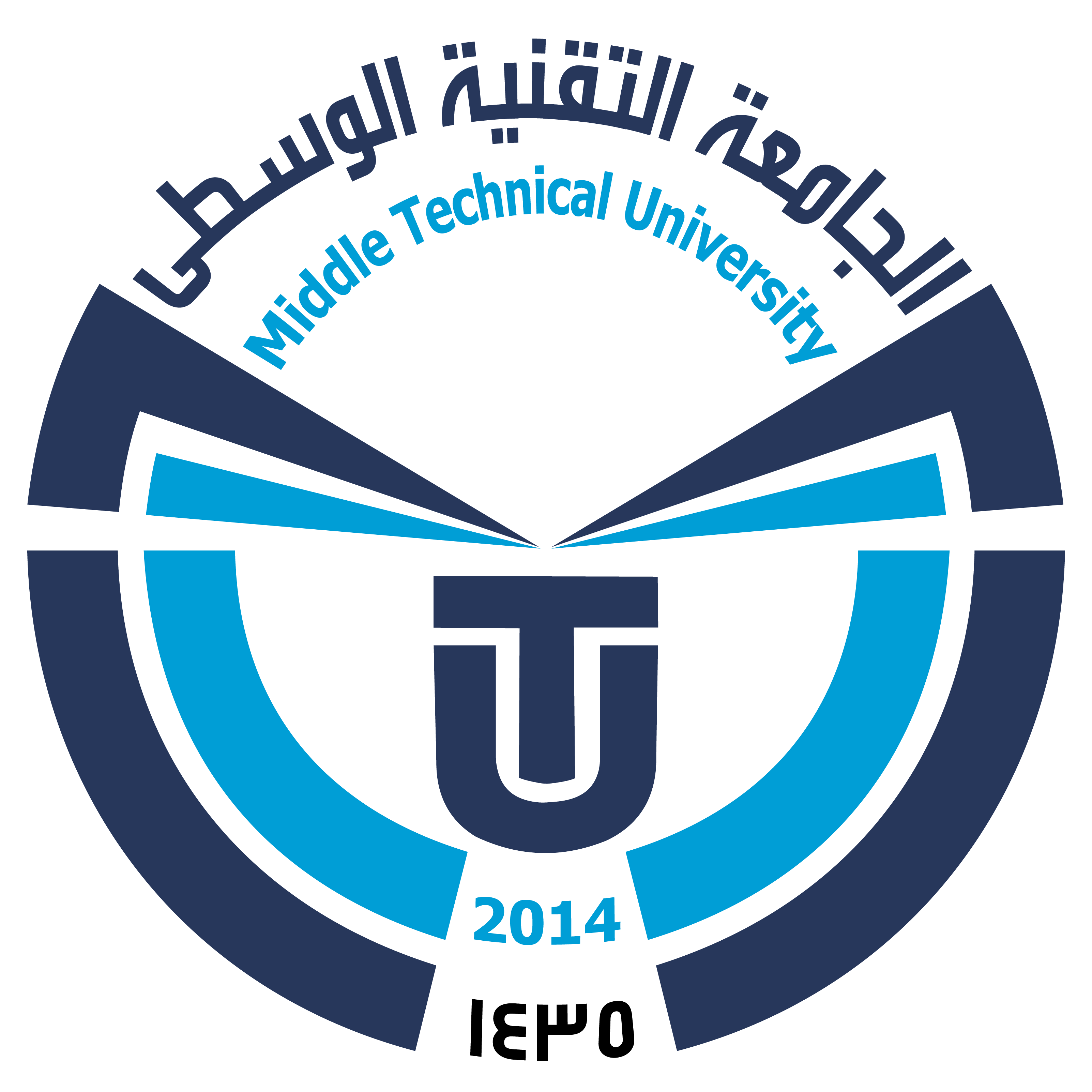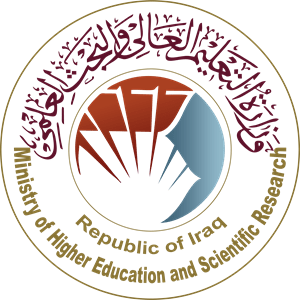Evaluating the Effectiveness of AI Tools in Mathematical Modelling of Various Life Phenomena: A Proposed Approach
DOI:
https://doi.org/10.51173/ijds.v2i1.16Keywords:
Artificial intelligence, AI Chatbots, Proposed Approach, Mathematical modelling, Mathematical problemsAbstract
Advances in artificial intelligence (AI) are transforming the landscape of mathematical modelling in areas including physics, biology, and chemistry. Research suggests that ChatGPT, Gemini, and other AI tools can change the way researchers use simulation and modeling for complex phenomena by helping to produce models faster with less computational complexity and real-time insights. Here, we introduce a novel framework for building mathematical models of life sciences using AI tools for applications in disease dynamics and ecological systems. The approach integrates AI tools into the process for a hybrid model that combines initial model formulations based on AI-assisted discussions and refinements based on expert validation of AI-generated output. To give an example, if we are interested in modelling disease outbreaks, AI platforms such as ChatGPT or Gemini can instantly build a simple susceptible-infectious-recovered (SIR) model. This also helps with high dataset processing and making parameter suggestions based on real-time data, which in turn helps in the dynamic adaptation of models to changing data (e.g. transmission rates or intervention strategies). Likewise, in ecological modelling, AI tools can aid in the generation of predator-prey models that consider these complex interactions, such as habitat fragmentation or reserved zones and then suggest parameter sensitivities based on observed trends. These abilities make the future of AI-based mathematical modelling especially exciting, as they will further decrease the time that is traditionally spent by researchers on manually defining models and allow them to focus on result interpretation and strategic decision-making. With the rapidly changing advances in AI tools, incorporating some new capabilities and developments in the mathematical modelling procedure may allow for unprecedented improvements in predictive performance, model flexibility and interdisciplinary investigations. Further research and real-world efforts with this approach are needed to determine if AI tools can improve the cost-effectiveness and affordability of mathematical modelling in many fields of science.
Downloads
References
J. L. van Hemmen, "Mathematization of Nature: How It Is Done," Biological Cybernetics, vol. 115, no. 6, pp. 655–664, 2021, doi: 10.1007/s00422-021-00914-5.
A. Bellouquid and A. Delitala, "Mathematical Modeling of Complex Biological Systems," in Mathematical Modeling of Complex Biological Systems, Springer, 2006, doi: 10.1007/978-0-8176-4503-8.
A. V. Ratushny, S. A. Ramsey, and J. D. Aitchison, "Mathematical Modeling of Biomolecular Network Dynamics," in Network Biology: Methods and Applications, Springer, 2011, pp. 415–433. https://doi.org/10.1007/978-1-61779-276-2_21.
J. A. Tuszynski et al., "Mathematical and Computational Modeling in Biology at Multiple Scales Biophysics," Theoretical Biology and Medical Modelling, vol. 11, no. 1, pp. 1–42, 2014, doi: 10.1186/1742-4682-11-52.
X. Wang and H. Deng, "The Application of Gillespie Algorithm in Spreading," in 3rd International Conference on Mechatronics Engineering and Information Technology (ICMEIT 2019), vol. 87, pp. 688–695, 2019, doi: 10.2991/icmeit-19.2019.110.
C. Spreitzer, O. Straser, S. Zehetmeier, and K. Maaß, "Mathematical Modelling Abilities of Artificial Intelligence Tools: The Case of ChatGPT," Education Sciences, vol. 14, no. 7, Art. no. 698, 2024, doi: 10.3390/educsci14070698.
Y. Mohamadou, A. Halidou, and P. T. Kapen, "A Review of Mathematical Modeling, Artificial Intelligence and Datasets Used in the Study, Prediction and Management of COVID-19," Applied Intelligence, vol. 50, no. 11, pp. 3913–3925, 2020. https://doi.org/10.1007/s10489-020-01770-9.
S. Keskes, S. Hanini, M. Hentabli, and M. Laidi, "Artificial Intelligence and Mathematical Modelling of the Drying Kinetics of Pharmaceutical Powders," Kemija u Industriji, vol. 69, 2020. https://doi.org/10.15255/KUI.2019.038.
J. A. Moore and J. C. L. Chow, "Recent Progress and Applications of Gold Nanotechnology in Medical Biophysics Using Artificial Intelligence and Mathematical Modeling," Nano Express, vol. 2, no. 2, Art. no. 022001, 2021. https://doi.org/10.1088/2632-959X/abddd3.
N. Koceska, S. Koceski, L. Koceva Lazarova, M. Miteva, and B. Zlatanovska, "Can ChatGPT Be Used for Solving Ordinary Differential Equations," Balkan Journal of Applied Mathematics and Informatics, vol. 6, no. 2, pp. 103–114, 2023.
T. K. F. Chiu, Q. Xia, X. Zhou, C. S. Chai, and M. Cheng, "Systematic Literature Review on Opportunities, Challenges, and Future Research Recommendations of Artificial Intelligence in Education," Computers and Education: Artificial Intelligence, vol. 4, Art. no. 100118, 2023. https://doi.org/10.1016/j.caeai.2022.100118.
A. Abulibdeh, E. Zaidan, and R. Abulibdeh, "Navigating the Confluence of Artificial Intelligence and Education for Sustainable Development in the Era of Industry 4.0: Challenges, Opportunities, and Ethical Dimensions," Journal of Cleaner Production, Art. no. 140527, 2024. https://doi.org/10.1016/j.jclepro.2023.140527.
S. Grassini, "Shaping the Future of Education: Exploring the Potential and Consequences of AI and ChatGPT in Educational Settings," Education Sciences, vol. 13, no. 7, Art. no. 692, 2023. https://doi.org/10.3390/educsci13070692.
S. Elbanna and L. Armstrong, "Exploring the Integration of ChatGPT in Education: Adapting for the Future," Management & Sustainability: An Arab Review, vol. 3, no. 1, pp. 16–29, 2024. https://doi.org/10.1108/MSAR-03-2023-0016.
S. Salisu, O. M. Alyasiri, H. A. Younis, T. M. Sahib, A. H. Ali, A. A. Noor, and I. M. Hayder, "Measuring the Effectiveness of AI Tools in Clinical Research and Writing: A Case Study in Healthcare," Mesopotamian Journal of Artificial Intelligence in Healthcare, vol. 2024, pp. 8-15, 2024. https://doi.org/10.58496/MJAIH/2024/002.
M. Hosseini, C. A. Gao, D. M. Liebovitz, A. M. Carvalho, F. S. Ahmad, Y. Luo, N. MacDonald, K. L. Holmes, and A. Kho, "An Exploratory Survey About Using ChatGPT in Education, Healthcare, and Research," Plos One, vol. 18, no. 10, Art. no. e0292216, 2023. https://doi.org/10.1371/journal.pone.0292216.
A. A. Nafea, M. M. AL-Ani, M. A. Khalaf, and M. S. I. Alsumaidaie, "A Review of Using Chatgpt for Scientific Manuscript Writing", Babylonian Journal of Artificial Intelligence, vol. 2024, pp. 9–13, Jan. 2024. https://doi.org/10.58496/BJAI/2024/002.
J. Li, A. Dada, B. Puladi, J. Kleesiek, and J. Egger, "ChatGPT in Healthcare: A Taxonomy and Systematic Review," Computer Methods and Programs in Biomedicine, Art. no. 108013, 2024. https://doi.org/10.1016/j.cmpb.2024.108013.
R. Xu and Z. Wang, "ChatGPT in Healthcare from the Perspective of Digital Media: Applications, Opportunities and Challenges," Heliyon, 2024. https://doi.org/10.1016/j.heliyon.2024.e32364.
S. Shorey, C. N. Z. Mattar, T. L.-B. Pereira, and M. Choolani, "A Scoping Review of ChatGPT's Role in Healthcare Education and Research," Nurse Education Today, Art. no. 106121, 2024. https://doi.org/10.1016/j.nedt.2024.106121.
T. M. Sahib, I. M. Hayder, O. M. Alyasiri, S. Salisu, F. N. Abbas, H. A. Younis, and A. A. Noor, "An Analytical Review of CHATGPT Influence on Healthcare, Media, and Education Advancements," Journal of AL-Turath University College, vol. 2, no. 38, 2024.
V. Terziyan, O. Kaikova, M. Golovianko, and O. Vitko, "Can ChatGPT Challenge the Scientific Impact of Published Research, Particularly in the Context of Industry 4.0 and Smart Manufacturing?," Procedia Computer Science, vol. 232, pp. 2540-2550, 2024. https://doi.org/10.1016/j.procs.2024.02.072.
A. Samad and A. Jamal, "Transformative Applications of ChatGPT: A Comprehensive Review of Its Impact across Industries," Global Journal of Multidisciplinary Sciences and Arts, vol. 1, no. 1, pp. 26-48, 2024. https://doi.org/10.1007/978-3-031-52280-2_19.
S. Liang, "Opportunities and Problems Presented by ChatGPT to the Financial Industry," Highlights in Business, Economics and Management, vol. 24, pp. 1284-1289, 2024.
E. Osadchaya, B. Marder, J. A. Yule, A. Yau, L. Lavertu, N. Stylos, S. Oliver, et al., "To ChatGPT, or not to ChatGPT: Navigating the paradoxes of generative AI in the advertising industry," Business Horizons, 2024. https://doi.org/10.1016/j.bushor.2024.05.002.
Y. K. Dwivedi, N. Pandey, W. Currie, and A. Micu, "Leveraging ChatGPT and other generative artificial intelligence (AI)-based applications in the hospitality and tourism industry: practices, challenges and research agenda," International Journal of Contemporary Hospitality Management, vol. 36, no. 1, pp. 1-12, 2024. https://doi.org/10.1108/IJCHM-05-2023-0686.
S. Sai, R. Sai, and V. Chamola, "Generative AI for Industry 5.0: Analyzing the impact of ChatGPT, DALLE, and Other Models," IEEE Open Journal of the Communications Society, 2024. https://doi.org/110.1109/OJCOMS.2024.3400161.
A. Sökmen, H. E. Arici, and G. ÇALIŞKAN, "Determinants of the Usage of ChatGPT in the Tourism and Hospitality Industry: A Model Proposal from the Technology Acceptance Perspective," Journal of Tourism & Gastronomy Studies, vol. 12, no. 1, pp. 626-644, 2024. https://doi.org/10.21325/jotags.2024.1398.
A. Sherif, S. A. Salloum, and K. Shaalan, "Systematic Review for Knowledge Management in Industry 4.0 and ChatGPT Applicability as a Tool," in Artificial Intelligence in Education: The Power and Dangers of ChatGPT in the Classroom, 2024, pp. 301-313.
O. Lazkani, "Revolutionizing Education of Art and Design Through ChatGPT," in Artificial Intelligence in Education: The Power and Dangers of ChatGPT in the Classroom, Cham: Springer Nature Switzerland, 2024, pp. 49–60. https://doi.org/10.1007/978-3-031-52280-2_4.
N. Rane and S. Choudhary, "Role and Challenges of ChatGPT, Google Bard, and Similar Generative Artificial Intelligence in Arts and Humanities," Studies in Humanities and Education, vol. 5, no. 1, pp. 1–11, 2024. https://doi.org/10.48185/she.v5i1.999.
P. R. Richard, M. P. Vélez, and S. Van Vaerenbergh, "Mathematics Education in the Age of Artificial Intelligence," in How Artificial Intelligence Can Serve the Mathematical Human Learning, 2022. https://doi.org/10.1007/978-3-030-86909-0.
M. Z. bin Mohamed, R. Hidayat, N. N. binti Suhaizi, M. K. H. bin Mahmud, and S. N. binti Baharuddin, “Artificial Intelligence in Mathematics Education: A Systematic Literature Review,” International Electronic Journal of Mathematics Education, vol. 17, no. 3, 2022, Art. no. em0694. https://doi.org/10.29333/iejme/12132.
S. Choudhary, S. Kathuria, G. R. Kumar, P. Pal, and M. Gupta, "Artificial Intelligence and Its Role in Language Games in Mathematics Classrooms," in 2024 3rd International Conference on Sentiment Analysis and Deep Learning (ICSADL), IEEE, 2024, pp. 284–288. https://doi.org/10.1109/ICSADL61749.2024.00052.
Z. Zafrullah, M. L. Hakim, and M. Angga, "ChatGPT Open AI: Analysis of Mathematics Education Students Learning Interest," J. Technol. Glob., vol. 1, no. 01, pp. 1–10, 2023.
Y. Wardat, M. A. Tashtoush, R. AlAli, and A. M. Jarrah, "ChatGPT: A revolutionary tool for teaching and learning mathematics," Eurasia J. Math. Sci. Technol. Educ., vol. 19, no. 7, 2023, doi: 10.29333/ejmste/13272.
E. Supriyadi and K. S. Kuncoro, "Exploring the future of mathematics teaching: Insight with ChatGPT," Union J. Ilm. Pendidik. Mat., vol. 11, no. 2, pp. 305–316, 2023, doi: 10.30738/union.v11i2.14898.
O. Taani and S. Alabidi, "ChatGPT in Education: Benefits and Challenges of ChatGPT for Mathematics and Science Teaching Practices," International Journal of Mathematical Education in Science and Technology, 2024, pp. 1–30. https://doi.org/10.1080/0020739X.2024.2357341.
N. E. Z. İ. H. E. Guler, Z. Dertli, E. Boran, and B. Yildiz, "An Artificial Intelligence Application in Mathematics Education: Evaluating ChatGPT's Academic Achievement in a Mathematics Exam," Pedagogical Research, vol. 9, no. 2, 2024. https://doi.org/10.29333/pr/14145.
T. Pelton and L. F. Pelton, "Using Generative AI in Mathematics Education: Critical Discussions and Practical Strategies for Preservice Teachers, Teachers, and Teacher Educators," in Society for Information Technology & Teacher Education International Conference, Association for the Advancement of Computing in Education (AACE), 2024, pp. 1800–1805. https://www.learntechlib.org/primary/p/224212/.
B. Pepin, N. Buchholtz, U. Salinas-Fernandez, et al., "A Scoping Survey of ChatGPT in Mathematics Education," Preprint, 25 September 2024, available at Research Square, https://doi.org/10.21203/rs.3.rs-4982227/v1.
S. Yeo, J. Moon, and D.-J. Kim, "Transforming Mathematics Education with AI: Innovations, Implementations, and Insights," The Mathematics Education, vol. 63, no. 2, pp. 387–392, 2024. https://doi.org/10.7468/mathedu.2024.63.2.387.
M. Nurwahid and S. Ashar, "A Literature Review: The Use of Artificial Intelligence (AI) in Mathematics Learning," in Proceeding International Conference on Religion, Science and Education, vol. 3, pp. 337–344, 2024. https://sunankalijaga.org/prosiding/index.php/icrse/article/view/1254.
R. Govender, "The impact of artificial intelligence and the future of ChatGPT for mathematics teaching and learning in schools and higher education," Pythagoras- J. Assoc. Math. Educ. South Africa, vol. 44, no. 1, pp. 1–2, 2023. https://doi: 10.4102/PYTHAGORAS.V44I1.787.
M. de C. Borba and V. R. Balbino Junior, "ChatGPT and Mathematics Education," Educ. Matemática Pesqui. Rev. do Programa Estud. Pós-Graduados em Educ. Matemática, vol. 25, no. 3, pp. 142–156, 2023. https://doi: 10.23925/1983-3156.2023v25i3p142-156.
Judelyn L. Patero, "Revolutionizing Math Education: Harnessing ChatGPT for Student Success," Int. J. Adv. Res. Sci. Commun. Technol., no. October, pp. 807–813, 2023. https://doi: 10.48175/ijarsct-12375.
N. Matzakos, S. Doukakis, and M. Moundridou, "Learning Mathematics with Large Language Models: A Comparative Study with Computer Algebra Systems and Other Tools," Int. J. Emerg. Technol. Learn., vol. 18, no. 20, pp. 51–71, 2023, doi: 10.3991/ijet.v18i20.42979.
J. Dydak, "Artificial Intelligence and Teaching of Linear Algebra," researchgate.net, no. August, 2023, doi: 10.13140/RG.2.2.15727.20642.
N. Karjanto, "Investigating difficulties and enhancing understanding in linear algebra: Leveraging SageMath and ChatGPT for (orthogonal) diagonalization and singular value decomposition," Math. Biosci. Eng., vol. 20, no. 9, pp. 16551–16595, 2023, doi: 10.3934/mbe.2023738.
J. Dydak, "Artificial intelligence to assist problem solving in linear algebra," https//www.researchgate.net/publication/377395558 Artif., no. January, 2024. https://doi: 10.13140/RG.2.2.22087.27044.
J. An, J. Lee, and G. Gweon, "Does ChatGPT Comprehend Place Value in Numbers When Solving Math Word Problems?," CEUR Workshop Proc., vol. 3491, pp. 49–58, 2023.
N. Rane, "Enhancing Mathematical Capabilities through ChatGPT and Similar Generative Artificial Intelligence: Roles and Challenges in Solving Mathematical Problems," SSRN Electron. J., 2023. https://doi: 10.2139/ssrn.4603237.
S. Gattupalli, R. W. Maloy, and S. Edwards, "Comparing Teacher-Written and AI-Generated Math Problem Solving Strategies for Elementary School Students: Implications for Classroom Learning," Coll. Educ. Work. Pap. Reports Ser., 2023.
I. Poola and V. Božid, "Guiding AI with human intuition for solving mathematical problems in Chat GPT," Int. J. Eng. Sci. Res., vol. 11, no. 07, 2023.
P. Shakarian, A. Koyyalamudi, N. Ngu, and L. Mareedu, "An Independent Evaluation of ChatGPT on MathematicalWord Problems (MWP)," arXiv preprint arXiv:2302.13814 (2023). http://doi.org/10.48550/arXiv.2302.13814.
X.-Q. Dao and N.-B. Le, "Investigating the Effectiveness of ChatGPT in Mathematical Reasoning and Problem Solving: Evidence from the Vietnamese National High School Graduation Examination," arXiv Prepr. arXiv2306.06331, 2023. https:// doi: 10.48550/arXiv.2306.06331.
F. O. Egara and M. Mosimege, "Exploring the Integration of Artificial Intelligence-Based ChatGPT into Mathematics Instruction: Perceptions, Challenges, and Implications for Educators," Education Sciences, vol. 14, no. 7, 2024, Art. no. 742. https://doi.org/10.3390/educsci14070742.
A. G. Sawyer, "Artificial Intelligence Chatbot as a Mathematics Curriculum Developer: Discovering Preservice Teachers' Overconfidence in ChatGPT," International Journal on Responsibility, vol. 7, no. 1, p. 1, 2024. https://doi.org/10.62365/2576-0955.1106.
Y. Belghith, A. M. Goloujeh, B. Magerko, D. Long, T. McKlin, and J. Roberts, "Testing, Socializing, Exploring: Characterizing Middle Schoolers' Approaches to and Conceptions of ChatGPT," Proceedings of the CHI Conference on Human Factors in Computing Systems, 2024, doi: 10.1145/3613904.3642332.















